12 Beautiful Quotes From Women In Art Who Aren't Afraid To Call Out Injustice
Today is International Women’s Day, a day globally dedicated to acknowledging the economic, social and political achievements of women across the world. In honor of the occasion, we’re rounding up some of the best interviews we’ve had with women in the arts, all of whom aren’t afraid to tackle the tough issues women face in their daily lives. From education to beauty, success to authenticity, popular perceptions of body hair to the epidemic of catcalling, these female artists don’t veer away from injustice; instead, they face obstacles head on.
Behold, 12 beautiful quotes from women in the arts:
On the importance of education:
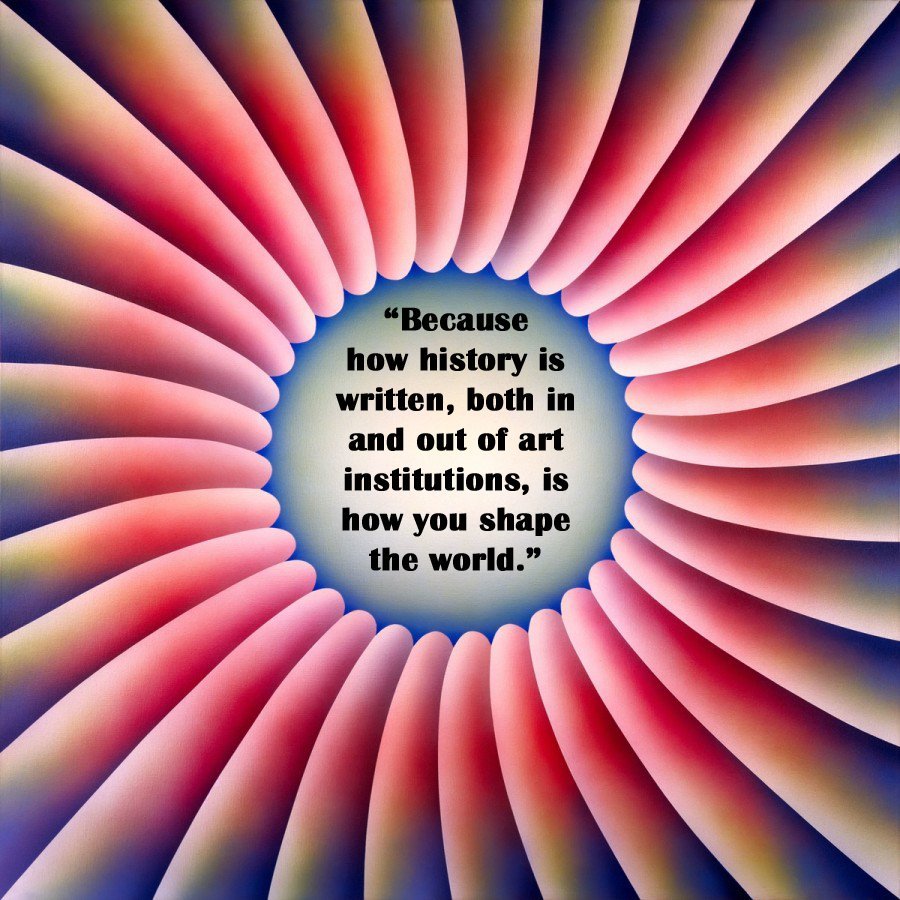
” It’s not enough to have a few women’s studies courses. Why is it more important to study Paul Revere’s midnight ride than it is Susan B. Anthony’s 50-year effort to transform the face of America for women? When you’re in school, most of the events you study are about men. Men’s activities lauded and repeated over and over. What about us? What about commemorating the decades-long struggle for suffrage? Why don’t we hear those stories over and over and over again. It’s almost inconceivable for men to understand what it would be like to live without that constant valorization.”
On catcalling:
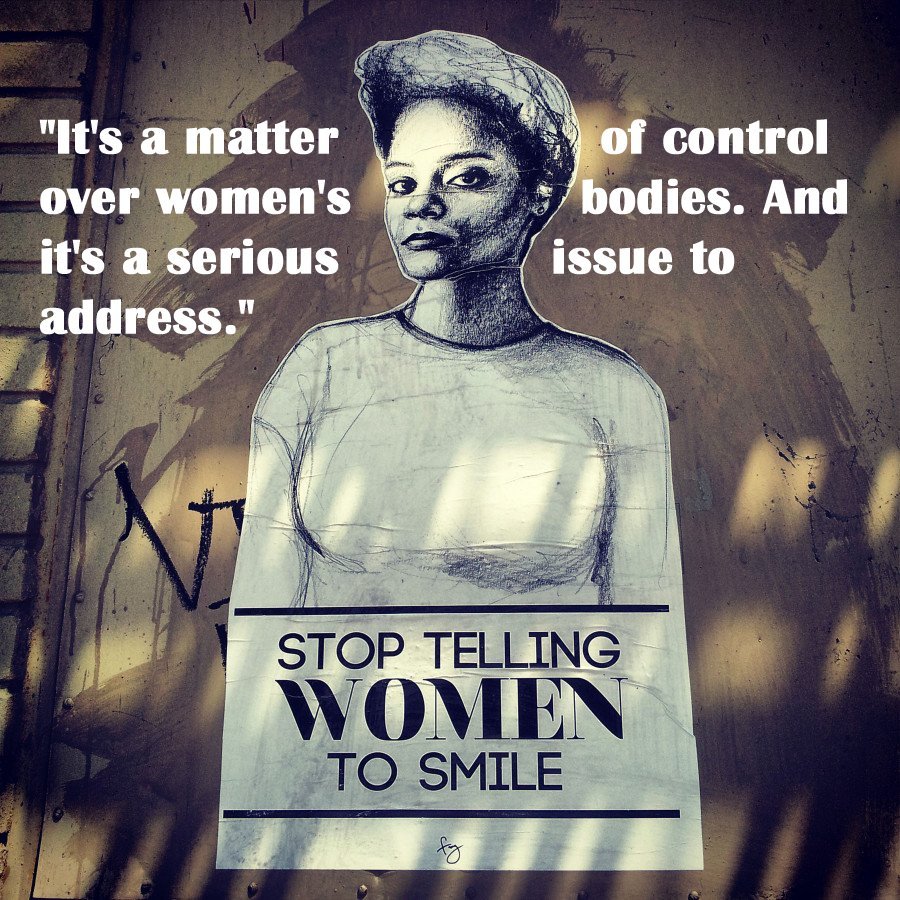
“There are always those who want to tell women that their experiences are not valid or not important whenever they speak up. For me, as a black woman, this is particularly true. Wanting the basic right of feeling comfortable and safe and not sexualized as I walk out of my house is very much worth prioritizing.” -artist Tatyana Fazlalizadeh (read more here)
On success in a contemporary world:
“Success is now lined up with the realm of glamour, money and accoutrement which in essence have nothing to do with an originating vision but they do have to do with establishing recognition in commercial culture. I think women artists have a chance to deflect that and break that grip apart.” -performance artist Carolee Schneemann (read more here)
On finding your authentic self:

“I came of age before women’s lib, and wanted to buck the stereotypes of a culture that branded me a pretty girl, thin enough to be a fashion model and not much more. Armed with my camera and tripod, I found a way to define myself on my own terms in the most authentic way I could.” -photographer Lucy Hilmer (read more here)
On our culture’s preoccupation with female body hair:
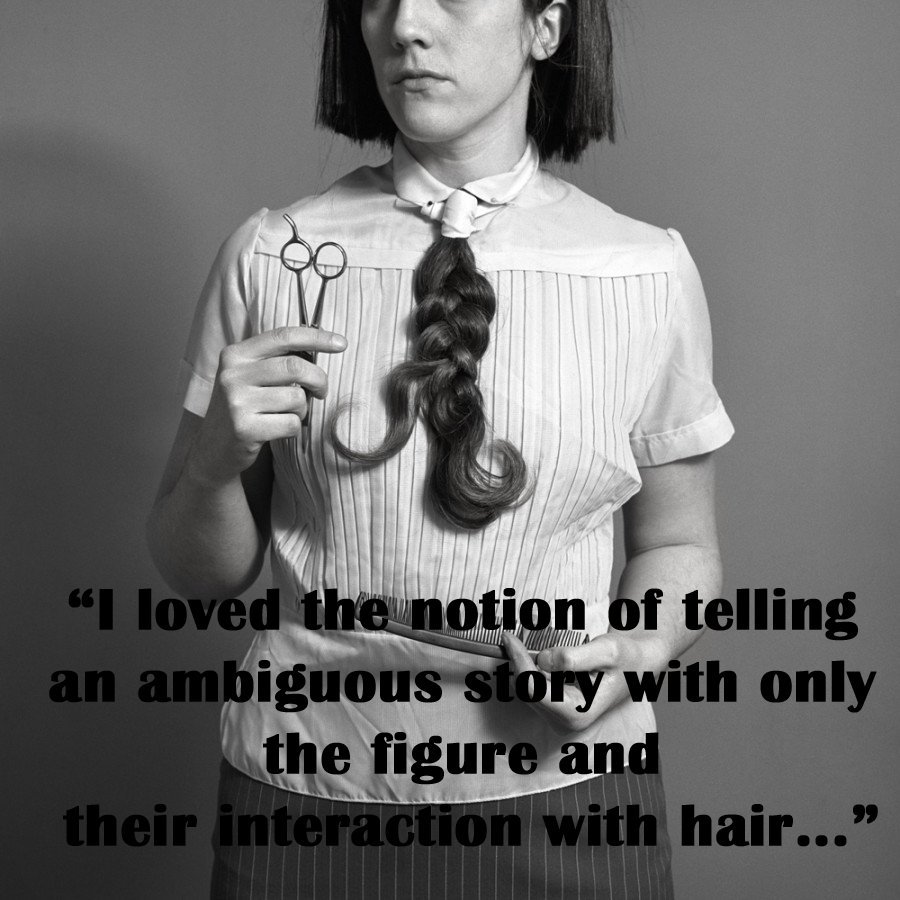
“I entered making this work with a sense of fascination that hair is both beautiful and repulsive in our culture. The fragile influence of context is its only distinction. We see long hair on a woman as a symbol of beauty and femininity, but as soon as the hair is cut or removed the body, we think of it as unsanitary and strange. Likewise, we seem to never have enough hair in the places we want it, and too much hair in the places that we don’t want it to be!” -photographer Rebecca Drolen (read more here)
On definitions of beauty:
“The power to show real women, honest, present, complex and complete. Individuals, radiant in their own right. Not stripped of their personhood, or manipulated for a fantasy or metaphor. I like to think the power of lifting the veil from individuals helps to challenge societies darker fetishes and beliefs, perhaps shatter notions of bigotry and stereotypes… One of my greatest joys is working with women who do not usually dwell in this side of their beauty and yet in the work recognize themselves completely, as they are and magnificent.” -painter Victoria Selbach (read more here)
On the realities of trans women:
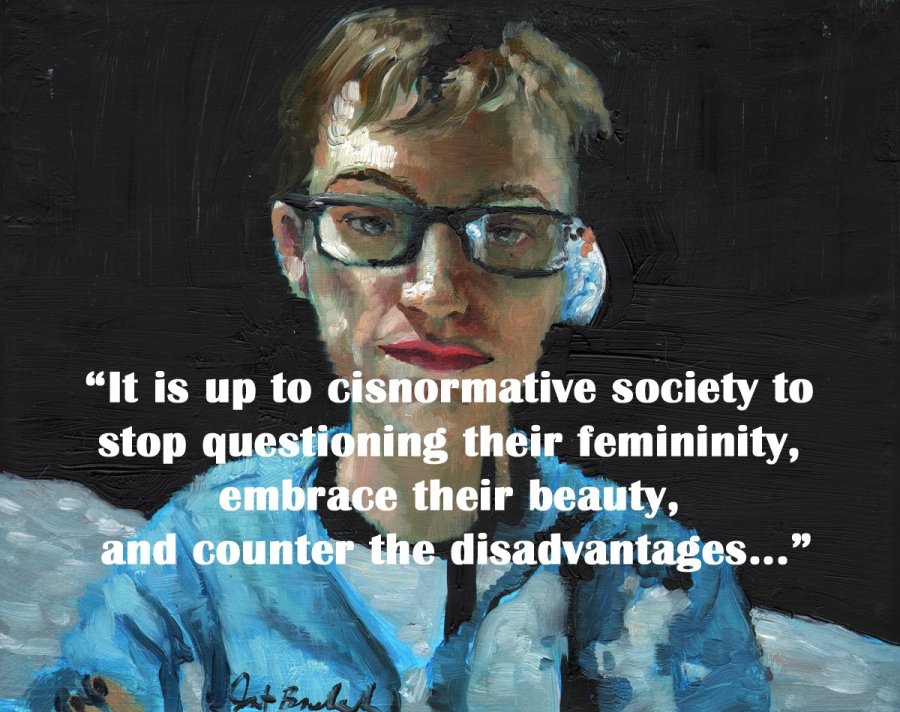
“[My] series was inspired by my love for the trans women I have met online and my sympathy with the struggles they have being seen as women and people… Trans women are everywhere, but until recently have been marginalized by the invisibility enforced by the intensification of misogynist violence toward them. It is up to cisnormative society to stop questioning their femininity, embrace their beauty, and counter the disadvantages they have just by being themselves.” -artist Janet Bruesselbach (read more here)
On gun control laws:
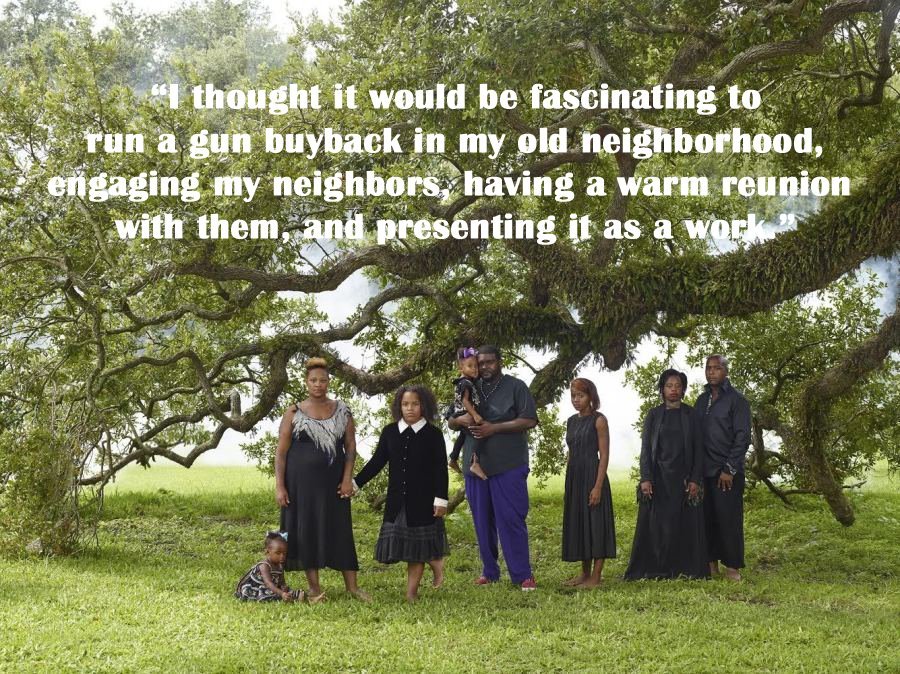
“My hope is that the young men in the 8th Ward and the surrounding neighborhoods are inspired to trade killing for creativity. Through the relationships they’ve developed they decide they can move past the paradigm of gangsters and guns. Healing in the neighborhood, by the neighborhood.” -artist and curator Kirsha Kaechele (read more here)
On the radical nature of the selfie:
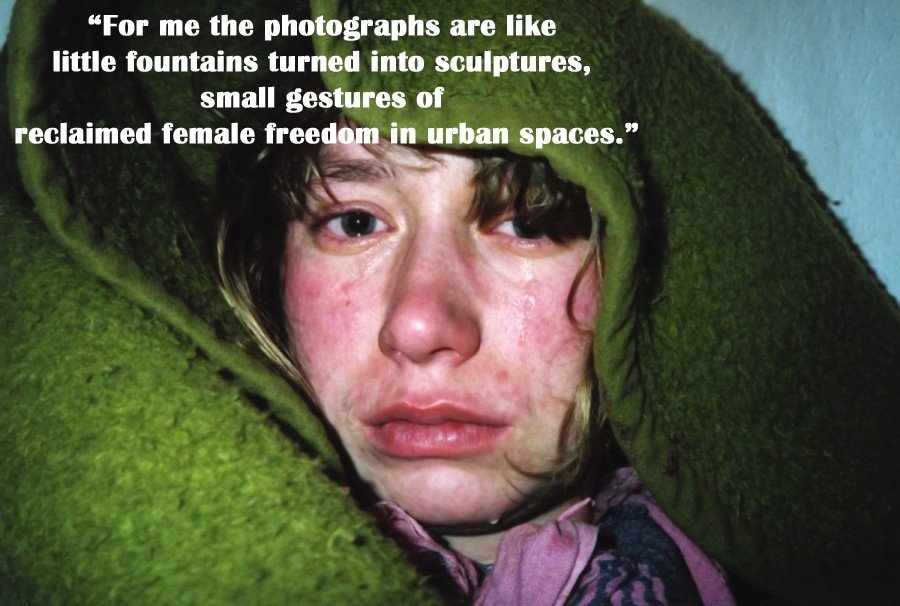
“Yes, of course they have the capability of being radical or feminist. Our generation knows the image of the self better then any other generation before, because of our access to cameras, media and sharing. And also, the language of the image is no longer in the hands of specialists. We are all experts in reading images and we know how to control and manipulate the viewer through images.” – artist Melanie Bonajo (read more here)
On feminism’s potential for future change:
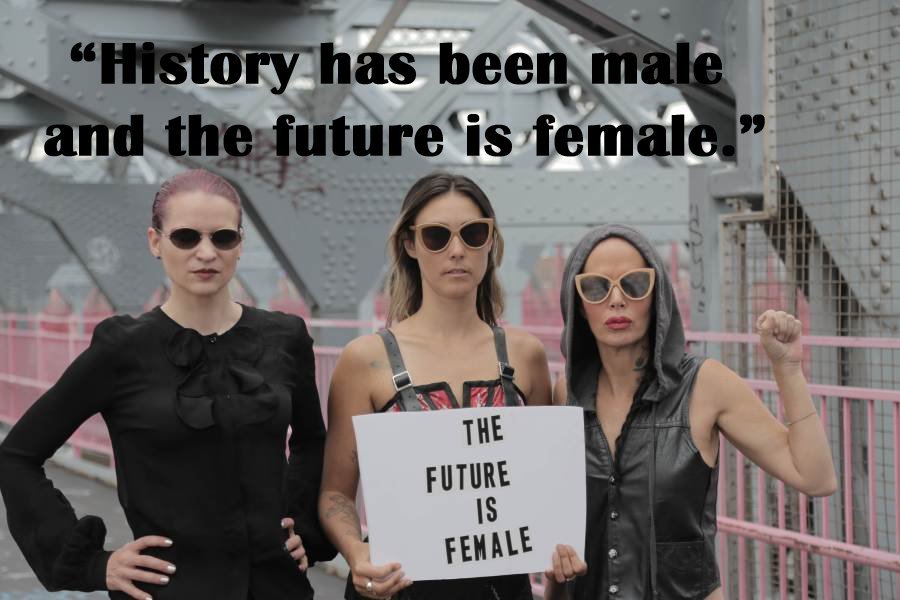
“The Future Feminist point of view has increasingly leaned not towards striving for equal status within a male construct or a male society, but rather to invite a redesign of society based on the principles of a feminine archetype in order to create the hope of a sustainable future for us all.” -The Future Feminists (read more here)
On inclusion in the art world:
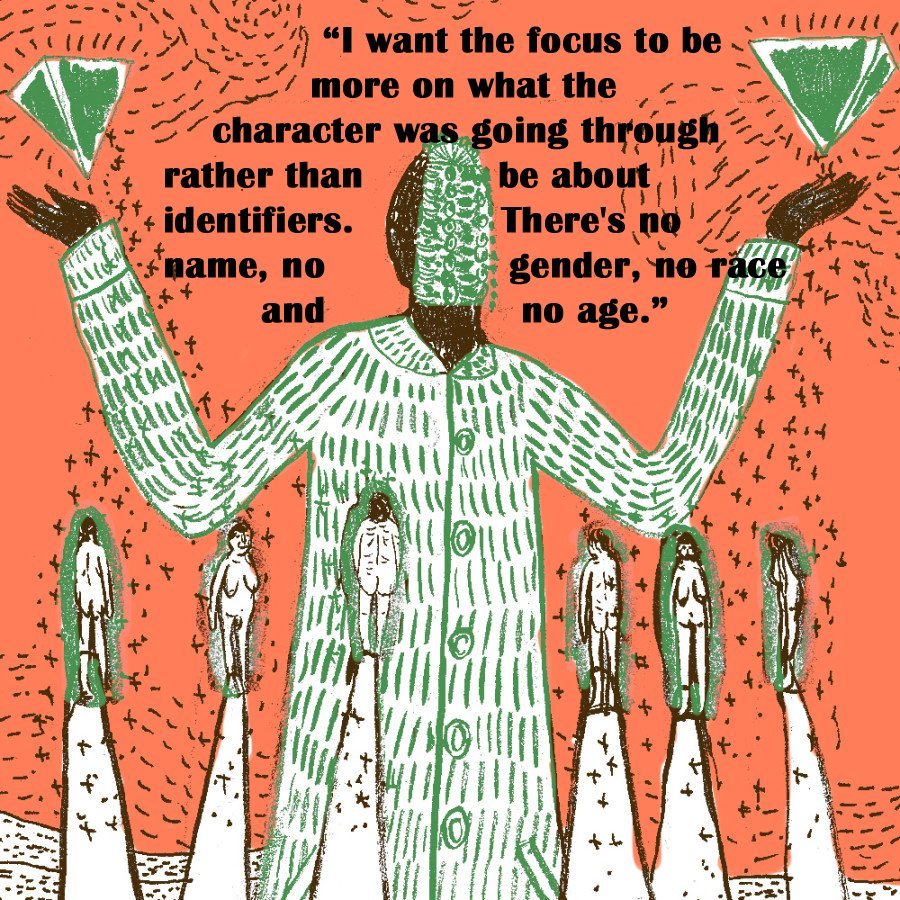
“I am aware of the fact that in the bigger scheme of things in the art and literary worlds there are still a lot of gaps as far as diversity and representation goes. That is part of my personal inspiration to make art and tell stories and have more representation for women and people of color.” -comic artist Yumi Sakugawa (read more here)
On hope
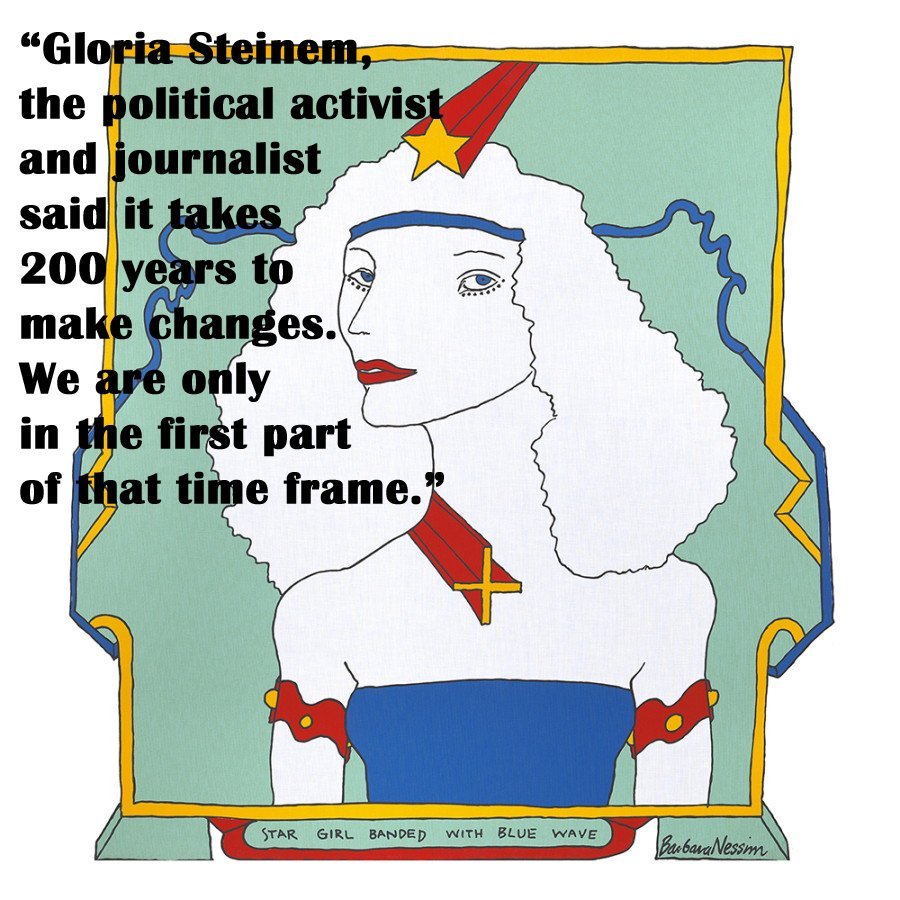
-Barbara Nessim (read more here)
You Might Like
